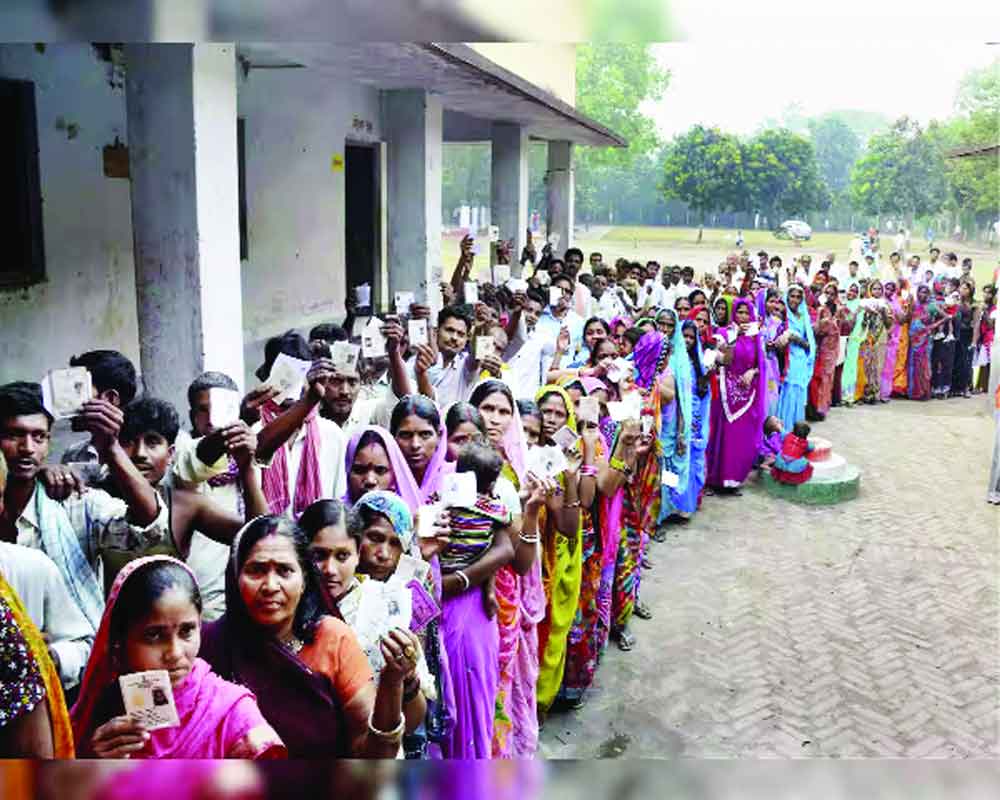In a nation where election season seems perennial, the traditional distinction between campaign fervour and governance blurs into a continuous political landscape
The election season is here. The reaction to the statement could well be that election season is now almost there around the year. There are some elections in some parts of the country going on constantly. In short, almost every season has become an election season. It would be tempting to ask oneself if this is a good thing or a bad thing. It’s normal to be judgmental in matters which appear to be significant. However, it would not matter which way the judgment goes because the judgment would not affect the actual run of the situation.
That may be another matter. However, the present election fever is unique in its type because it affects every part of the country and is not confined to a small region or another. The concern of the day is national rather than regional, as it often is. This makes the issues of national significance to figure out a choice in the fray. National issues could come up in many areas, such as defence, taxation, education and interstate movements. The special entry provisions that govern certain regions of the country, or indeed the kind of inter-regional transportation structure, including waterways, as it affects human movement, trade, or commerce. The list enumerated itself is loud and can be added to. However, it makes a basic point. The issues in this election are issues that cut across states, have pan-India bearings, or affect the identity of citizens in the country. All this adds to the exclusivity of the election. Conceptually, what has been set in the preceding few lines is correct.
But operationally, there are many other shades and colours. A dominant theme affecting these elections seems to be religion, whereas worship is always a private thing. In India, methods of worship have often served as a method of aggregation of identity. This is a particularly unique gift of the way independence was achieved in this country. No country in the world in the post-colonial era was ever partitioned based on religion, as India was, as a prerequisite for independence. How this helped anyone or any cause is not quite clear. If the basis of partition was religion, there was something strange about one country proclaiming its identity to be one religion and another country emphatically proposing that it would not have any religious identity. That, however, was the choice of August, 14 and 15, 1947, by the two countries that brought into existence freedom, or more technically, the withdrawal of colonial rule. The British were particular in pointing out that they were giving back power from where they had taken it when they started the rule of then-unified India. The rest has to say is history. But post August 15, 1947, saw an experience throughout the subcontinent that was unique and has been termed by some historians as the ‘unification of India’. There was a British India and a princely India.
The British India territories would have elected government, yet the princely India would have their choice of secession to India or Pakistan. The rest, as they say, is history. Barring Multan, North West Frontier territory, Jammu and Kashmir, Junagarh and Hyderabad, the merger issues were largely smooth and without too much contention. Even the territories named above had a choice exercised sooner than what seemed most likely possible. The result was the emergence of a unified India and a unified Pakistan. Jammu and Kashmir remained the only state in which a deliberate contention was kept alive. Indeed, there was no contentious issue if the terms of the Freedom Act were followed, but in one way or another, the matter continues to evoke emotions, in a unique way, in several people. It is not just religion at play, there are several factors, including geopolitical ones. It is also possible not to recognize how the matter has been made increasingly complex by an unnecessary play of force, some of whom have no locus standee at all in the case.
One would have thought that elections held at a national level, so often, so regularly and so fairly across the length and breadth of the country, would have rendered the whole issue of controversy in Jammu and Kashmir needless. Alas, that is not the case.
Elections have a certain pattern in this country: give and take a few arguments here and there. However, choices have to be exercised and the numerical outcome of those choices determines how the country is governed. So the question arises as to what the net findings of the propositions thrown up as electoral issues are. In many states, local issues seem to be inclined to determine the balloting that would take place for national representation. This appears to be the case, especially in Karnataka, Bihar, Manipur and some other states.
The essence of the matter is that choices have to be exercised and the arguments of the choices need only to be communicable in terms of the strength that the community appears to endorse in the legislature. It is worth remembering that, at the end of the day, once the election results are announced, there is no accountability for the correlation between how choices made on issues during elections will be exercised when the party concerned, which wins the election, administers the issue. It may well be said that elections as a process still await better mellowing and maturing to make them an internally consistent one. At the moment, it is satisfying to note that by and large, the process of exercising choices, its panning out in the legislature and its administrative implementation are increasingly becoming worthwhile efforts and, a coherent method of administering, sensibly, a large country, such as India.
(The writer is a well-known management consultant of international repute. The views expressed are personal)


























